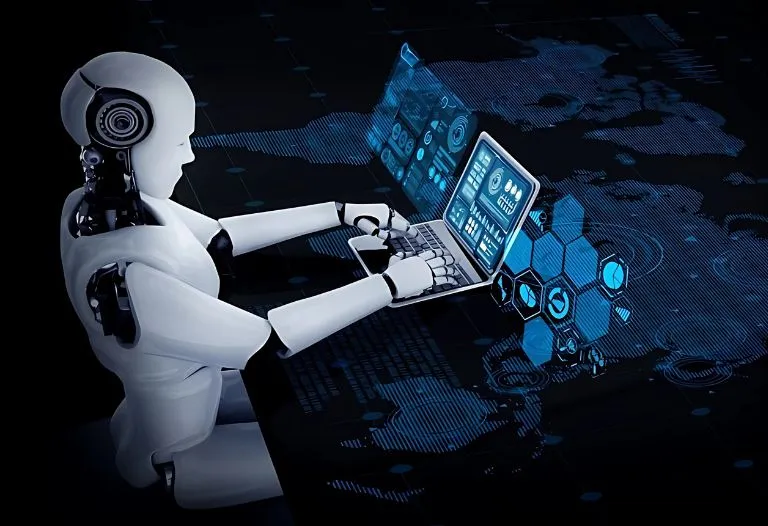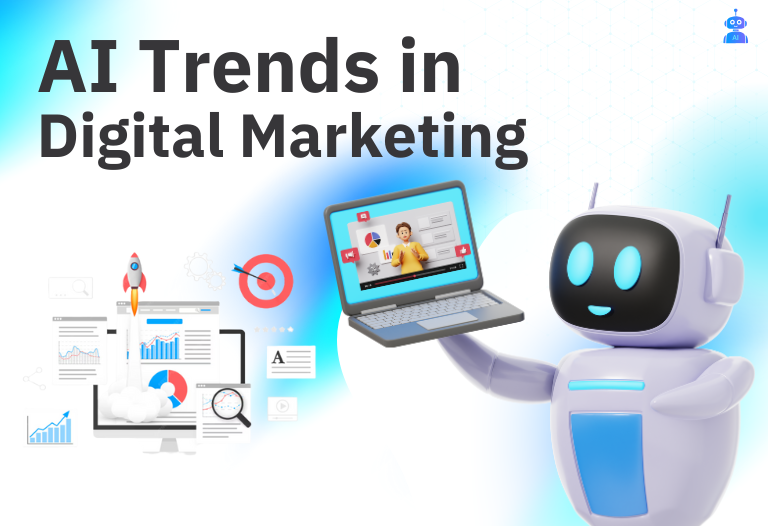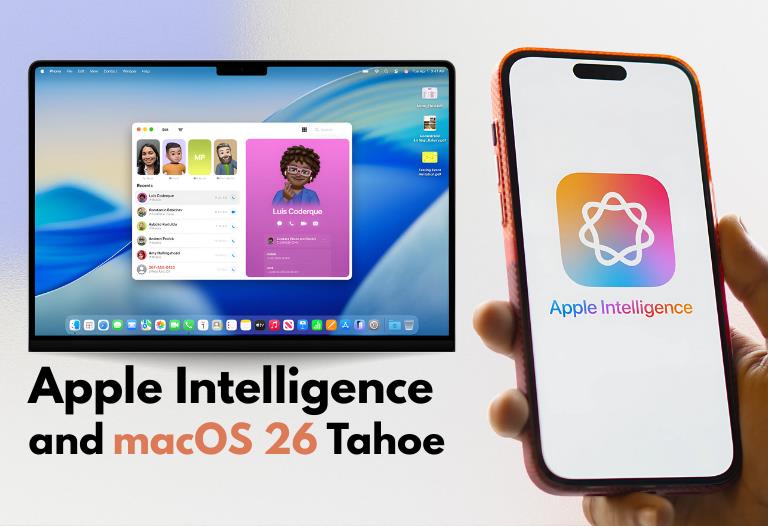
We’ve all experienced the joy of solving a jigsaw puzzle or building with Lego blocks. These activities are akin to developing software. While a software is a collection of instructions, data, or programs that enable computers and other devices to perform specific tasks, AI in software development is like a special helper that can make the building process much easier, faster, and remarkably reliable.
While AI is no longer a futuristic concept, this blog aims to explain how software is designed, built, and maintained by AI. Also, we will explore the benefits, challenges, and future of AI in software development.
AI Triggered Changes in Software Development
AI has revolutionized the software industry by simply automating routine tasks. This frees up developers to focus on strategic and creative endeavors. Key functions in software development like code generation, testing, debugging, and even deployment is increasingly handled by AI tools, which analyze code, identify patterns, and suggest optimizations in a fraction of time.
Code generation and Completion:
AI assists developers in generating code and providing intelligent code completion. The new-age AI tools use natural language processing (NLP) to interpret human language and generate functioning code snippets based on the user’s commands or comments.
Tools to Use:
GitHub Copilot: Suggests entire code snippets based on context.
Tabnine: Offers intelligent code completion and real-time suggestions.
Amazon CodeWhisperer: Specializes in domain-specific code suggestions.
Additionally, AI facilitates tasks like documentation generation, code refactoring, and suggesting performance optimizations, further improving efficiency and output quality.
Testing
AI systems automate test case generation and execution, significantly reducing manual efforts while ensuring comprehensive coverage. This improves reliability and speeds up the testing phase in the development of lifecycles.
Bug Detection and Fixing
AI excels in error prediction and automated debugging by analyzing patterns within codebases. These tools identify errors and provide solutions, enhancing code quality and reducing the time spent troubleshooting.
Capabilities include:
Predicting potential vulnerabilities.
Offering automated fixes for recurring issues.
Analyzing historical data to improve error detection accuracy.
Key Benefits of AI in Software Development
While AI is rapidly transforming the world of Software Development, it has some extraordinary features that are second to none at the moment.
Increased Efficiency
AI dramatically reduces the time spent on repetitive tasks, enabling developers to focus on innovative solutions. Reports suggest that AI tools can save up to 50% of developers’ time on generic programming tasks.
Enhanced Software Quality
AI ensures higher software quality by detecting bugs early, optimizing code, and suggesting improvements. It minimizes human error, leading to robust applications.
Faster Development Cycles
AI accelerates every stage of software development, from planning and coding to testing and deployment. This leads to shorter development cycles and quicker time-to-market.
Cost Reduction
AI’s ability to reduce errors and automate a bunch of various tasks can save companies a lot of money. This means organizations can do more with less, making their operations much more budget friendly.
Democratization of Software Development
No-code and low-code AI platforms empower non-technical users to participate in software development, fostering inclusivity and innovation across teams.
Personalized User Experiences
AI enhances user experiences by personalizing applications based on user data, making software more intuitive and user-friendly.
Challenges and Limitations of AI in Software Development
Data Dependency
AI’s effectiveness primarily relies on the datasets’ size and quality. Issues like data bias and sourcing challenges can impact the accuracy and fairness of AI-generated outputs.
Complexity of AI Algorithms
Designing and implementing AI algorithms requires expertise and a set of resources, which can sometimes act as a barrier for smaller organizations.
Ethical Considerations
AI introduces ethical challenges, including bias in algorithms and concerns about job displacement. Developers must prioritize fairness and transparency to address these issues.
Over-Reliance on AI
Dependence on AI tools may lead to developers losing fundamental coding skills. Balancing AI usage with manual expertise is crucial.
Code Quality
AI-generated code may contain errors, security vulnerabilities, or lack of maintainability. Human oversight remains essential to ensure high-quality outputs.
The Evolving Role of the Software Developer
From Code Writers to Orchestrators
AI is really shaking things up for developers. Instead of just writing out codes, they’re now stepping into roles that involve orchestrating technology. So, what are they focusing on? Here are a few key areas:
Architectural Planning: Developers are getting involved in the bigger picture, planning how systems will fit together.
System integration: They’re also ensuring different technologies work well together.
Strategic Problem-Solving: It’s all about tackling complex challenges and finding innovative solutions.
What’s exciting is that combining human creativity with AI’s capabilities drives a ton of innovation and makes workflows way more efficient.
New Skills for the AI Era
To keep up in this new landscape, developers need to pick up some fresh skills, like:
Data Science: Understanding data is becoming crucial.
Machine Learning: Knowing how to work with AI tools is a must.
Prompt Engineering: Crafting the correct prompts to get the best out of AI.
The Importance of Human Oversight
Even though AI is boosting productivity, human expertise still plays a vital role. Here’s why:
Refining AI Outputs: Developers need to fine-tune what AI produces to ensure it meets their standards.
Addressing Ethical Concerns: They’re also responsible for navigating the ethical side of AI use.
Ensuring Contextual Accuracy: Making sure that AI understands the context correctly is key to getting valuable results.
While AI is changing the process of Software development inside out, it’s clear that developers will always have an essential role in guiding and enhancing the technology.
AI Tools for Developers
AI tools are revolutionizing the way developers work, streamlining processes, and enhancing productivity. Here’s a closer look at some of the most popular AI tools that developers are using today:
GitHub Copilot
GitHub Copilot, an AI coding assistant from OpenAI, offers real-time code suggestions within the Integrated Development Environment (IDE), enhancing coding speed and accuracy. It utilizes natural language processing to convert plain English into relevant code snippets, proving valuable in diverse fields like game development for writing logic and mechanics. For more details, check out GitHub Copilot.
Tabnine
Tabnine is a robust AI tool providing smart code suggestions based on your coding style and project requirements. It integrates with leading IDEs, automates repetitive tasks, boosts productivity, and minimizes errors by identifying code patterns. Learn more at Tabnine.
Amazon CodeWhisperer
Amazon CodeWhisperer enhances developer productivity with real-time code suggestions, generating functions swiftly and featuring built-in security scanning for vulnerability detection. It supports various programming languages and integrates seamlessly with popular IDEs, such as Visual Studio Code and IntelliJ IDEA.
Codeium
Codeium aids developers in code generation and debugging, providing context-aware suggestions to enhance efficiency and speed up development. Visit Codeium for details.
TensorFlow
TensorFlow is a popular machine learning framework that allows developers to create and train models for diverse applications, favored by beginners and experts for its flexibility and scalability.
PyTorch
PyTorch is a popular deep-learning library known for its dynamic computation graph, enabling intuitive model building. It’s favored by researchers for its ease of use and performance.
These tools improve coding efficiency and encourage innovation, enabling developers to concentrate on creative solutions. As AI advances, its role in software development will grow.
The Future of AI in Software Development
AI will continue to evolve, handling more coding tasks and leaving developers to focus on high-level strategy and innovation. Trends include:
AI driving advancements in agile methodologies.
Enhanced collaboration between AI and human creativity for innovative solutions.
Speculative Impact
AI may redefine software development entirely, automating end-to-end workflows while maintaining the need for human oversight to guide strategic decisions.
Conclusion
AI is revolutionizing software development by boosting efficiency, quality, and innovation. Developers should blend creativity and problem-solving with AI’s strengths. The industry’s future relies on human-AI collaboration, and those organizations embracing these changes will spearhead technological advancements. If this information seems interesting, read about how you can power your business with low-code and no-code platforms.




 January 23, 2025
January 23, 2025








